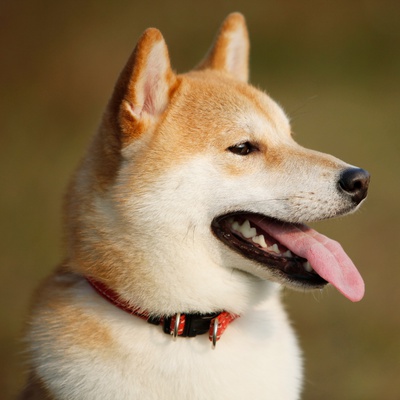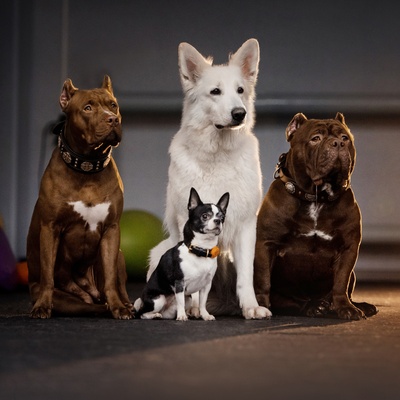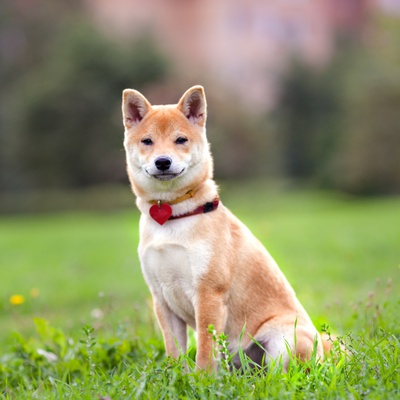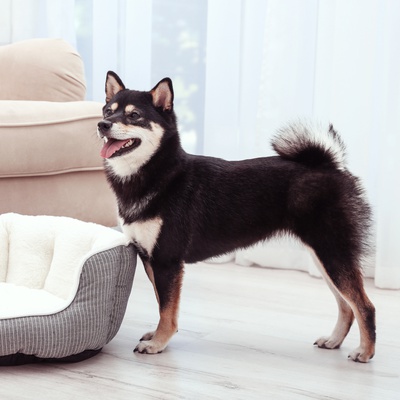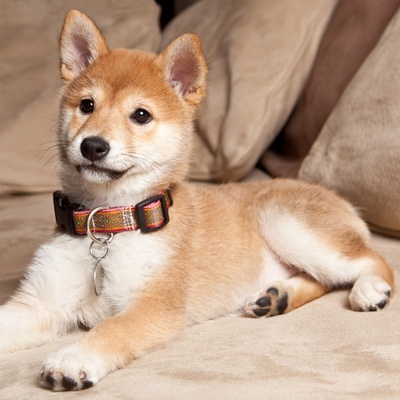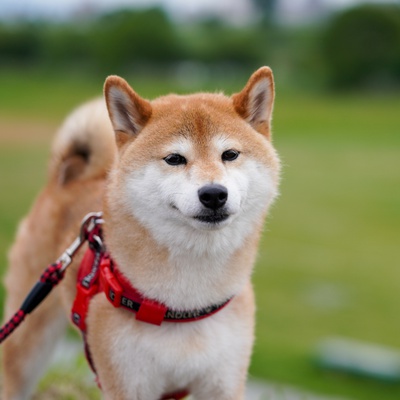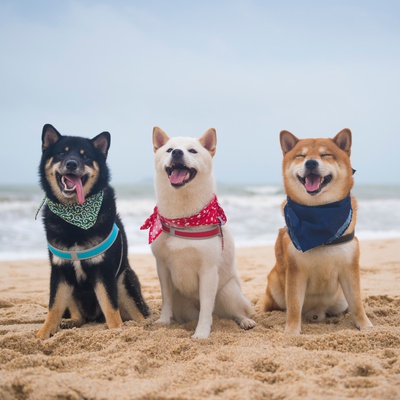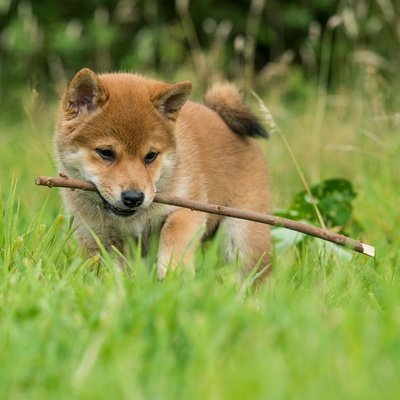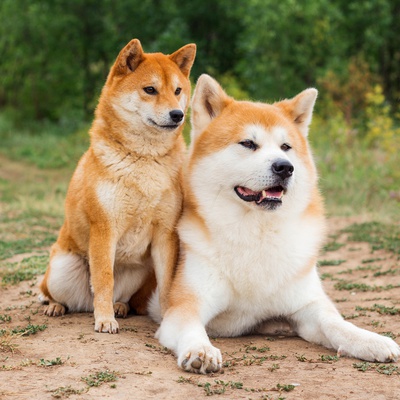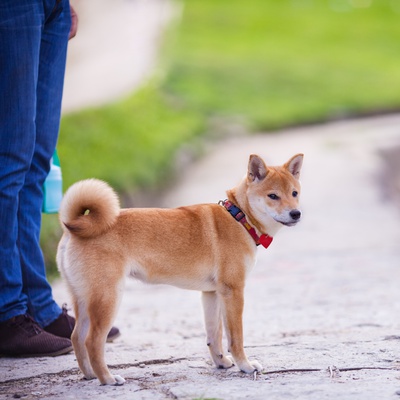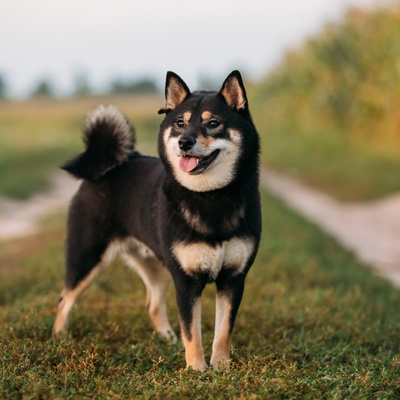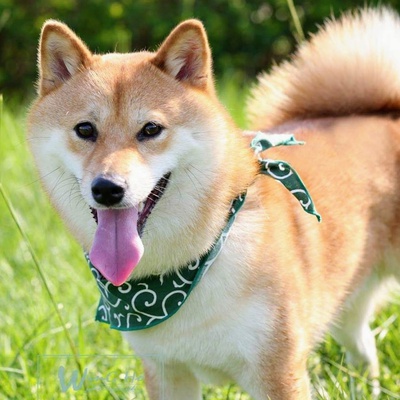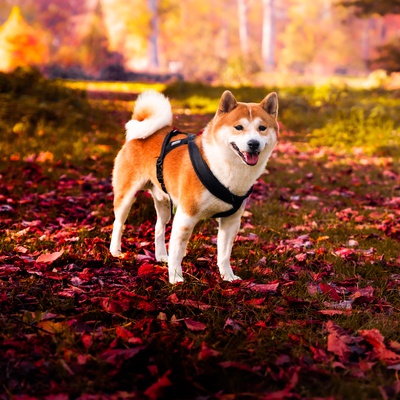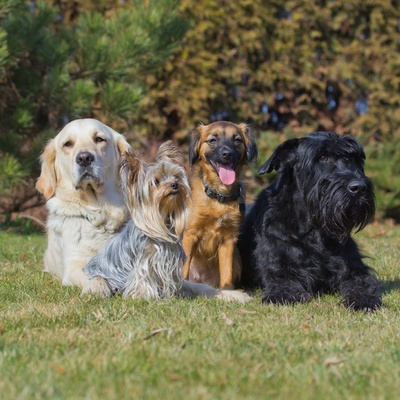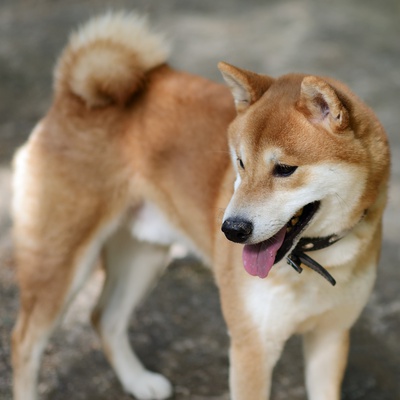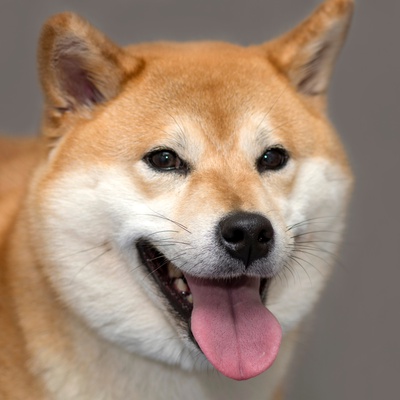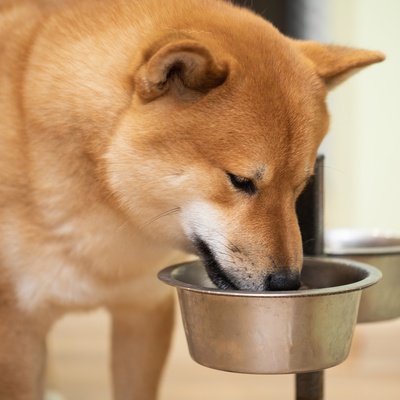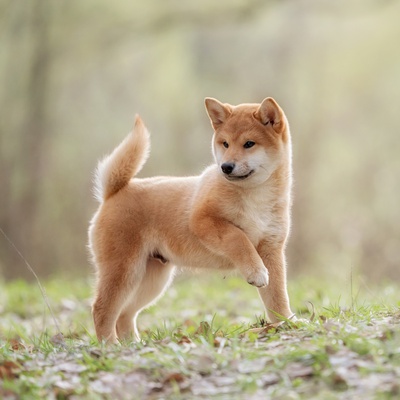Introducing the Shiba Inu
Discover all there is to know about the Shiba Inu: its characteristics, behaviour, training, and how much one costs.
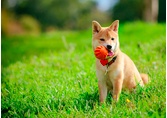
Discover all there is to know about the Shiba Inu: its characteristics, behaviour, training, and how much one costs.
The Shiba Inu, hailing from the mystical terrains of Japan, carries a legacy rooted deeply in history. It's believed that this breed served as a hunting companion, chasing small game in the rugged mountains. Its global popularity has skyrocketed, cementing its position among the top cherished breeds.
This fiery little canine is not just about good looks; it's an embodiment of courage, versatility, and agility. Beyond hunting, the Shiba Inu seamlessly fits into various roles, be it an alert watchdog or a devoted family companion. Its temperament is a captivating mix: fiercely independent yet deeply affectionate. And while they might exhibit a streak of stubbornness, their undeniable charm and sociability make them an endearing pet, always eager to display their boundless affection.
This section outlines the unique features of the Shiba Inu breed of dog.
The Shiba Inu belongs to the Spitz and primitive group, group 5, known for their wolf-like features and ancient origins. Such breeds are often characterized by their alertness and independence
The Shiba Inu is a small to medium-sized breed. Typically, they stand between 13.5 to 16.5 inches at the shoulder and weigh between 17 to 23 pounds.
Shiba Inus boast a double coat: a straight and stiff outer layer paired with a soft and dense undercoat.
Shiba Inus are often recognized for their fiery red coats. However, they can also be seen in black and tan, sesame (red with black-tipped hairs), or cream.
Shiba Inus can adapt to both apartments and houses, but they appreciate outdoor spaces for play, provided they are securely fenced.
While Shiba Inus are loyal and affectionate with their families, they can be reserved with strangers. They tend to get along with children when socialized early, but their interaction with other pets can vary.
Generally, Shiba Inus are robust and healthy. However, like many breeds, they can be predisposed to allergies and some joint issues.
Shiba Inus are intelligent yet independent, requiring consistent training. While they are quick learners, a patient and positive approach garners the best results.
We can help!
Every dog has its own character, and so do you. Making the right choice will ensure his well-being and yours.
Take our quiz to find out which breed is right for you, based on your personality, lifestyle, location and many other criteria.
Don't wait any longer and take the quiz to find out the answer!
Shiba Inus are compact, well-proportioned, and have an agile appearance. Their double coat, often in a striking red hue, combined with a curious and sharp expression, truly resembles that of a fox.
The Shiba Inu is a moderately sized breed. Typically, females stand between 13.5 and 15.5 inches, while males can reach up to 16.5 inches in height.
In terms of weight, female Shiba Inus usually fall between 17 to 20 pounds, with males weighing between 20 to 23 pounds.
Shiba Inus experience a consistent growth rate. By around 6 months, they reach approximately 75% of their adult weight. They usually achieve their full height and weight by the age of one year.
Shiba Inus possess a plush double coat that stands up to their bodies. The outer layer is straight and stiff while the undercoat remains soft and dense. Their fur is of moderate length, neither too short nor excessively long, which provides an attractive and well-balanced look.
Color is indeed a defining feature for the Shiba Inu. This breed boasts a range of colors, with the most popular being red, followed by sesame (a mix of red hairs with black-tipped hairs), black and tan, and cream.
However, the vibrancy and clarity of these colors, along with their urajiro markings (cream to white ventral color), set them apart.
Shiba Inus have a dense undercoat beneath their straight outer coat, which is both protective and insulating. This breed is known for its shedding, particularly during the shedding seasons in spring and autumn. Thus, frequent brushing, especially during these periods, is necessary to manage the shedding and ensure the coat remains healthy.
Shiba Inus have a self-cleaning coat, which naturally repels dirt. This means they don't need frequent baths, and in fact, over-bathing might strip their fur of essential oils. Typically, bathing them a few times a year, or when particularly dirty, will suffice. Always remember to use a dog-specific shampoo to maintain the health and luster of their coat.
The Shiba Inu is an epitome of balance and proportionality in its stature. Its head is wedge-shaped, giving it a fox-like appearance, which is complemented by its well-defined stop between the forehead and the muzzle.
The eyes of the Shiba Inu are a captivating feature; they are slightly slanted, deep set, and possess a vivid almond shape, usually in a dark brown shade. Positioned well apart and slightly tilted forward, the Shiba's small, triangular ears stand erect atop its head. As for its body, the Shiba Inu boasts a compact frame with lean muscles, showcasing agility and strength in its every movement.
The Shiba Inu is fiercely independent, loyal, and spirited, embodying a unique blend of affection and autonomy.
Currently, there are over 400 distinctive dog breeds recognized worldwide, which are categorized into 10 primary groups based on their shared characteristics and origins. The Shiba Inu is classified under group 5, which encompasses Spitz and primitive types of dogs. This group hosts breeds like the Samoyed, Alaskan Malamute, and the Akita, to name a few. Dogs within this grouping are known for their distinctive appearances, robust instincts, and high intelligence. Their ancient lineage often means they possess traits that are closer to wolves and primitive canines, making them both intriguing and challenging companions.
The Shiba Inu, in particular, is celebrated for its alertness, agility, and keen senses, which once made them exceptional hunting dogs in the rugged mountains of Japan. These compact dogs, with their spirited demeanor, are cherished both as city companions and countryside guardians.
Shiba Inus are an intriguing blend of aloof independence and unwavering loyalty. This small but spirited breed thrives on its own terms, often described as having a cat-like demeanor. While they might not always be overtly affectionate, their deep bond with their owners is undeniable.
They possess an innate intelligence and often show affection in subtle ways, making it all the more rewarding for their human counterparts. For a Shiba Inu to flourish and display its best traits, an understanding and patient owner, willing to respect its unique personality, is essential.
The Shiba Inu carries a certain charisma, exuding confidence mixed with a dash of cheekiness. While they might not be immediately open to strangers, they tend to warm up over time, revealing their generous side. Their interactions with humans, especially their family, are generally positive, and they can be good companions for older children who respect their space.
However, their natural alertness and territorial instincts might make them a bit reserved around unfamiliar faces. Although they can get along with other animals, early training is crucial to ensure that they are well-adjusted and amicable in various settings.
The Shiba Inu is remarkably versatile when it comes to its living situation. Whether residing in a bustling city apartment or a sprawling suburban home, the Shiba Inu can find its niche.
However, what remains a constant is the need for an owner's unwavering attention and dedication. These spirited dogs benefit from daily walks, preferably two, with each walk lasting about 30 minutes, allowing them to explore and engage with their surroundings.
While the Shiba Inu showcases commendable adaptability in various living conditions, it still harbors a natural curiosity that needs an outlet. Providing an outdoor environment, like a secure backyard, gives the Shiba Inu an arena to satisfy its inquisitiveness and expend pent-up energy.
These dogs love to explore, dart around, and sometimes just bask in the sun, emphasizing the significance of an occasional free roam in a safe area.
The Shiba Inu, known for its sharp intellect, is quite an astute learner. This breed is renowned for its combination of intelligence and independent nature. Training a Shiba Inu requires patience, consistency, and a deep understanding of its personality. While they can quickly pick up on cues and commands, they often weigh the benefits of obeying versus following their whims. Positive reinforcement is crucial with Shiba Inus, as they respond best to rewards and praise.
Given their independent streak and occasional propensity to chase after intriguing sights or scents, it's a wise idea to equip them with a GPS collar. This can ensure you have an extra layer of security to locate them in the rare instances they might wander off.
Shiba Inus are keen observers with a history of hunting in Japan's mountains, giving them high energy and a hint of stubbornness. Their strong prey drive necessitates early socialization, especially with smaller pets. Today, while mainly companions, their alertness makes them great watchdogs. With proper training, they shine in agility and obedience trials.
Take the test and find out the dog breed that matches your personality and lifestyle.
The Shiba Inu, known for its fox-like look, is usually healthy but requires daily care to prevent ailments and maintain well-being.
On the whole, Shiba Inus boast a robust constitution and are not frequently plagued by health issues. Yet, while they're sturdy, it's essential to be aware of certain health concerns common to the breed. Shiba Inus are occasionally predisposed to conditions such as hip dysplasia and patellar luxation, both of which relate to joint issues. Additionally, they might face some eye conditions, including progressive retinal atrophy, which can lead to vision loss.
The typical lifespan for a Shiba Inu ranges between 12 to 15 years, given they receive proper care and maintain a healthy lifestyle.
Regular veterinary visits are indispensable for the Shiba Inu to ensure they receive timely vaccinations, deworming, and treatments against parasites. Maintaining their health doesn't stop at the vet's office, though.
Their ears should be checked and cleaned weekly to prevent any buildup or potential infections. Dental hygiene is paramount; thus, brushing their teeth regularly helps prevent tartar buildup and associated dental problems. Furthermore, nail trimming is crucial to avoid overgrowth, which can cause discomfort and potential issues while walking.
Shiba Inus can sometimes manifest food allergies, so it's essential to monitor their diet and consult with a vet if any adverse reactions appear. Notably, the Shiba Inu is not considered a hypoallergenic breed.
Each dog breed, including the Shiba Inu, comes with its unique nutritional necessities. Ensuring a Shiba Inu receives a balanced diet replete with proteins and vitamins is the linchpin for maintaining their vibrancy and vigor. The use of high-quality kibble, specifically tailored for the breed, offers an ideal foundational dietary balance.
For particularly active Shiba Inus or those requiring additional protein intake, supplementing with lean white and red meats can be beneficial. However, it's imperative to monitor and limit fat content to ensure optimal health.
The Shiba Inu, with its spirited and alert nature, requires energy, but it's essential to monitor portions and avoid overfeeding. Stick to regular feeding times and ensure their meals are well-balanced to keep them in top shape.
The Shiba Inu, a beloved Japanese breed, is increasingly popular globally. With more breeders, it's crucial to consider various factors before adopting.
Opting to adopt a Shiba Inu into your home requires thoughtful consideration and due diligence. Prioritizing the selection of a reputable breeder is paramount. Making the effort to visit the breeder's facility gives you firsthand insight into the dogs' living conditions and behavior. Witnessing a clean, loving environment and well-behaved, healthy dogs is always a positive sign.
Furthermore, ensuring the health of both the puppy and its parents is of utmost importance. A conscientious breeder should willingly provide transparent information about the puppy's health, and any known illnesses or conditions prevalent in the puppy's lineage.
Lastly, mandatory electronic identification, like microchipping, is not always mandated at the federal level in the United States for cats and dogs. But microchipping is widely acknowledged as a successful way to permanently identify pets and increase the possibility of reuniting lost pets with their owners, even in the absence of universal regulations. As a pet owner, it is advised to inform yourself about municipal laws to ensure the safety and wellbeing of your pet.
The cost of acquiring a Shiba Inu can differ significantly based on various criteria. Influencing factors include the dog's lineage, its pedigree, the reputation of the breeder, and the age of the dog. Presently, the price range for a Shiba Inu puppy can oscillate between
to
, depending on these factors.
While the initial purchase price is a primary consideration, potential owners should also account for subsequent maintenance costs. Vet bills, grooming, training, and dietary needs can amount to an estimated annual expenditure of
to
.
Choosing a dog that matches your personality and lifestyle will ensure your well-being and his!
